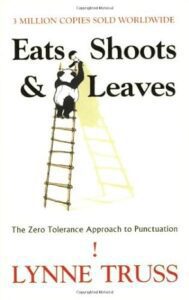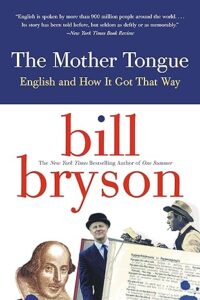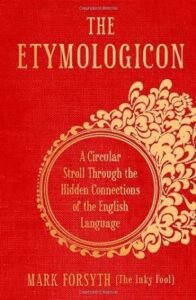Bear vs Bare: What’s The Difference?
In this article, we’re going to tackle two such words that often cause confusion:
“Bear” and “Bare.”
At first listen, they sound exactly alike, but they couldn’t be more different in meaning.
Short answer
“Bear” can mean to carry something or refer to the big, furry animal we all know from nature documentaries.
“Bare” is all about being uncovered or revealing something without adornment.
So, whether you’re a language enthusiast, a curious learner, or just looking to clear up some confusion, get ready to dive into the distinct worlds of “bear” and “bare.”
Definition of Bear
Alright, let’s break down “bear.”
This word has two main meanings, and both are pretty different from each other.
First…
“Bear” can mean to carry or support something, often in a figurative sense.
For example, if you say, “She bears a lot of responsibility,” it means she’s got a lot of stuff she’s in charge of or has to worry about.
The second meaning of “bear” is the one you might see in wildlife documentaries…
Yes…
The animal.
These are the large, furry creatures that live in the woods and love honey. Like, “We saw a bear while hiking in the forest.”
Use “bear” when you’re talking about carrying or holding up something (like responsibilities, burdens, or even grudges) or when you’re actually talking about the animal.
Definition of Bare
Now let’s dive into “bare.”
This word is all about something being uncovered, exposed, or without any decoration or covering.
If you walk into a room and see there’s nothing on the walls, no furniture, just empty space, you might say, “The room was completely bare.” It means there’s nothing there, it’s all open and empty.
OR
If someone is talking about the truth, and they’re not trying to hide anything or make it sound nicer, they might say, “He told the bare truth.” It’s like the truth with no dressing up, just plain and simple as it is.
“Bare” is typically used when describing something in its most basic form. It could be a place that’s empty (like a bare room), a plain fact (like the bare truth), or even when someone is not wearing what’s typically expected (like walking barefoot).
Etymology and Historical Usage
Let’s take a trip back in time to explore the origins and historical journey of “bear” and “bare,” which have shaped their current meanings.
Starting with “bear,” this word has ancient roots, dating back to Old English as “beran,” meaning to carry or bring forth. It traces back even further to the Germanic “beranan” and the Indo-European root “bher-,” both of which carry a similar meaning of bearing or carrying.
Historically, “bear” has consistently held this meaning of carrying or supporting something, whether physically or figuratively.
The animal bear got its name from a completely different root, likely due to the ancient taboo against saying the true name of a wild animal for fear of summoning it. Instead, they used a descriptor, which in Old English was “bera,” meaning “the brown one.”
On to “bare,” this word comes from the Old English “baer,” which means naked, uncovered, or without clothing. It’s linked to the Germanic “bazaz,” giving it a common root with the German “bar” and Dutch “baer.”
Historically, “bare” has always been associated with the lack of covering or being in a stripped or naked state. This core meaning has been retained over the centuries, still used today to describe anything that is uncovered or exposed, be it literally or figuratively.
Comparative Analysis
When comparing “bear” and “bare,” we’re looking at two words with distinct meanings and uses, each bringing its own flavor to a sentence.
“Bear”:
Connotations: “Bear” often carries a sense of weight or responsibility. It can also suggest endurance or the ability to persist under pressure.
Usage: It’s used in contexts of carrying, enduring, or being responsible for something. Also, don’t forget its literal meaning as the animal.
Example:
“She could hardly bear the heavy backpack.”
(Here, “bear” is about carrying or enduring weight.)
“Bare”:
Connotations: “Bare” suggests a lack of covering, decoration, or adornment. It can convey simplicity, openness, or even vulnerability.
Usage: It’s typically used to describe something in its simplest, most unadorned form. This could be literal (like a bare wall) or figurative (like the bare truth).
Example:
“The walls of the room were bare.”
(In this case, “bare” means without any coverings or decorations.)
Side-by-Side Comparison:
Bear (Endurance):
“They couldn’t bear the thought of losing the game.”
(Implies enduring or dealing with the situation.)
Bare (Uncovered):
“The facts were laid out bare for everyone to see.”
(Means the facts were exposed plainly, without hiding anything.)
Common Mistakes and Misuses
Mixing up “bear” and “bare” is a common error, especially since they sound exactly alike. But understanding their distinct meanings can help avoid these mix-ups.
Common Errors
Using “bear” instead of “bare”: A mistake like saying, “He walked bearfoot on the beach,” when it should be “barefoot.” “Bear” doesn’t fit because it’s not about carrying or enduring something, or about the animal.
Using “bare” instead of “bear”: An error like, “She couldn’t bare the heavy load,” when it should be “bear.” Here, “bare” is incorrect because the context is about carrying or enduring weight, not about being uncovered.
Practical Tips for Distinguishing Between Bear and Bare: Comparison Table
| Aspect | Bear | Bare |
| Meaning | To carry, endure, or the animal | Uncovered or exposed |
| Usage | Carrying a burden, enduring, or referring to the animal | Describing something without covering or decoration |
| Example | “She can bear the pain.” (Enduring) / “A bear roamed the forest.” (Animal) | “The room was bare and empty.” (Uncovered) |
| Mnemonic | Bear the animal – strong and enduring | Barefoot – exposed and uncovered |
Extra Tips:
*When writing, if you’re tempted to use one of these words, ask yourself: Am I talking about carrying or enduring something (or an animal)? If yes, use “bear.” If you’re describing something as uncovered or exposed, then “bare” is the word you need.
Usage in Literature and Media
“Bear” and “bare” have found their unique places in literature and media, each word adding depth and nuance to various narratives.
“Bear”:
In Literature:
“Bear” is often used metaphorically to depict endurance or responsibility.
In William Shakespeare’s “Macbeth,” the line “I cannot bear the murder of my king” reflects a heavy burden of guilt and responsibility. It’s about carrying an emotional or metaphorical weight.
“Bare”:
In Literature:
“Bare” is used to describe something in its most simple, unadorned state.
For example, Ernest Hemingway, known for his sparse style, might describe a scene with “The room was bare, with only a chair and a table.”
It conveys simplicity and absence of decoration or covering.
Examples in Use:
Bear (Endurance/Responsibility):
“The hero had to bear the burden of leading the team to safety.”
(Adventure Movie)
Bare (Uncovered/Simple):
“The walls of the cabin were bare, with not a single picture.”
(Literary Fiction)
Resources
For readers eager to delve deeper into the intricacies of language and usage, there are many insightful books that can broaden your understanding and appreciation of English. Here’s a list of some highly recommended titles:
“The Elements of Style” by William Strunk Jr. and E.B. White.
This classic guide offers clear advice on writing style, making it a staple for anyone interested in improving their writing.

“Eats, Shoots & Leaves: The Zero Tolerance Approach to Punctuation” by Lynne Truss.
A fun and witty look at the importance of punctuation in the English language.

“The Mother Tongue: English and How It Got That Way” by Bill Bryson.
Bryson explores the history, quirks, and idiosyncrasies of the English language in his typically engaging and humorous style.

“Word Power Made Easy” by Norman Lewis.
A comprehensive vocabulary-building resource that is both educational and entertaining.

“Dreyer’s English: An Utterly Correct Guide to Clarity and Style” by Benjamin Dreyer.
This modern guide from the copy chief of Random House offers practical advice on how to write clearly and with style.

“Through the Language Glass: Why the World Looks Different in Other Languages” by Guy Deutscher.
An exploration of how the language we speak shapes the way we think about the world.

“The Etymologicon: A Circular Stroll Through the Hidden Connections of the English Language” by Mark Forsyth.
A witty and fascinating journey through the unexpected connections between words.

“Made in America: An Informal History of the English Language in the United States” by Bill Bryson.
Bryson examines the American English language and how it evolved to be distinct from its British roots.

Each of these books offers a unique perspective on language, from its history and evolution to its style and usage. They are perfect for anyone looking to deepen their knowledge of English, whether for personal growth, academic purposes, or just out of sheer love for the language.
